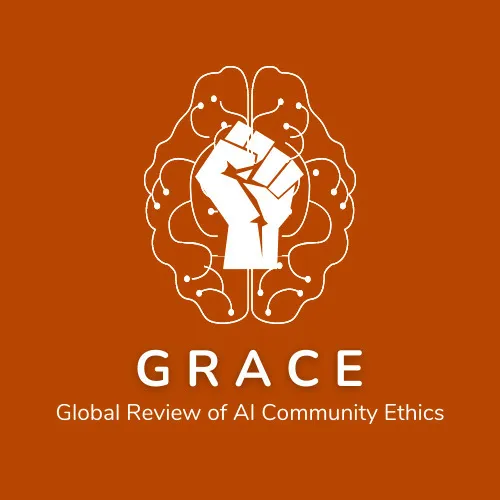Stanford’s student-founded academic journal GRACE: Global Review in AI Ethics launched in January and recently received a National Science Foundation grant to publish research on diverse approaches to AI ethics.
Program in Writing and Rhetoric (PWR) lecturers Harriett Jernigan ’98, Brittany Hull and Ruth Starkman will mentor GRACE, which will publish articles at the forefront of AI ethics research with the goal of creating a space that uplifts the work of underrepresented communities in tech, according to Starkman. The journal is cross-disciplinary in nature and aims to make complex technical ideas accessible to all, according to Jernigan.
“I think GRACE is a really good opportunity for people to challenge and interrogate things that are missing, and things that need to be added in that larger discussion about diversity and coding and programming,” Jernigan said.
According to Starkman, the idea for creating a journal dedicated to ethical issues in algorithmic design and use has been in development since in 2017, when it was proposed during discussions with students in her PWR classes, which include PWR 2STA: “Ethics and AI.” Since then, more students who see the value in pursuing algorithmic justice have joined the project, she added.
“People are skeptical that AI ethics is anything but window dressing as an alibi for tech,” Starkman said. “We thought, okay, let’s get people from the marginalized communities to run a journal and see if it cannot be that.”
The journal has three categories of papers that can be submitted: social impact, framework, and research notes and commentary. Its editors hope that these unique categories will encourage a wider array of perspectives, according to Starkman. The mission of the framework section, for example, is to “investigate a diverse spectrum of ethical approaches and problems, including the current limitations of frameworks in AI governance,” according to the journal’s website.
GRACE student editor Muhammad Khattak ’22 M.S. ’23 emphasized the importance of exploring multiple ethical frameworks with a focus on inclusivity when evaluating AI. Traditionally, people discuss ethics through the lens of philosophers Immanuel Kant and John Rawls, according to Khattak, but “there are so many more diverse ethical frameworks around the globe that address these same issues more inclusively,” he wrote in a comment to The Daily.
The journal will also host a podcast, in which leaders in AI ethics will be interviewed by Jernigan, Hull and student editors Linda Denson ’23 and Tyah Roberts ’23. Guests will include experts such as Timnit Gebru, the director of the Distributed Artificial Intelligence Review and former co-lead of Google’s AI Ethical Research Group, and Brandeis Marshall, the chief executive officer of DataedX, a data education firm. The experts will discuss issues of ethics and diversity in the development of current AI models and consider what needs to happen to change them.
Over 500 people from around the world have submitted abstracts, ranging from carbon footprints of data centers to algorithmic medicine in neuroscience, according to Starkman. The GRACE team hopes that the journal will highlight the work and research of Stanford students.
Submissions for abstracts and papers for the GRACE journal are due on March 15.
